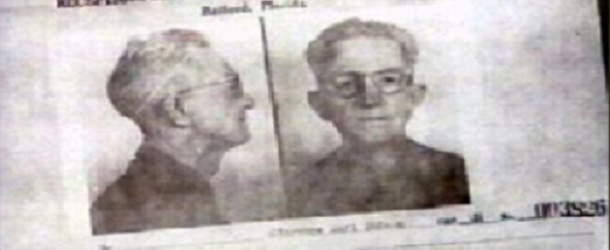2013 marks the 50th anniversary of a landmark case in American jurisprudence that upheld the right to counsel in all criminal cases, regardless of the level of offence. Mr. Gideon, charged with breaking and entering, could not afford counsel and represented himself unsuccessfully at district court. By reading law books in his jail cell, diligently taking notes and writing handwritten letters to well-known attorneys asking for representation, he made it to the Supreme Court of the United States and successfully defended his constitutional right to counsel embodied in the 6th Amendment. Since then Gideon’s story of self-made success has attained epic proportions as an American ideal of justice, romanticized in fiction and film alike. His story has come to symbolize the power of individual application to the Supreme Court in defense of Constitutional rights, and the triumph of justice over the labyrinth of legal paperwork and arcane rules that sequester the judicial system from a layperson’s reach.
In light of Gideon, one may wonder whether Turkey’s recent judicial reform package that allows for individual application to the Constitutional Court for claims made after September 23, 2012 has the potential to create similar outcomes, both in the sense of favorable judicial review and heightened respect and affection for the Constitutional Court. Will popular myth solidify an image of the benevolent court, defending the little guy against the forces that be? Will Turkish citizens and the world at large cease to view the European Court of Human Rights (ECHR) as the first defender of individual freedoms in Turkey, opting instead to view the court similarly to its image in most European judiciaries, as a means of last resort? Or will the Court become one more step in an already lengthy process to achieve justice, another level of meaningless review to be checked off before final application to the ECHR is permitted?
It may be too early to tell. Already an overwhelming majority of the applications filed have been incomplete; of those accepted and reviewed 100% have been dismissed for lack of standing, subject matter jurisdiction, or ratione temporis. Of the reform packages more generally many remain skeptical towards the underlying long-term intentions of AKP and their personal gains from facially democratic reforms. But there is reason to believe that in name and in fact the individual application to the Constitutional Court may prove to be one of the most influential and beneficial reforms to date. Merging ultimate judicial review of civil, criminal, and military cases in one court, and expanding the power of the court to review application of fundamental rights in light of international agreements above and beyond its initial powers of application of laws to inter-branch disputes greatly raises the perception of the Constitutional Court as a place of final arbitration and equalizes the hierarchical nature of claims. No more are individual questions of fundamental rights bottom-tier rights, no more are they rights external to the purview of Turkish high courts. The simple change that makes a Gideon-like case possible in the future is itself a legitimately positive shift in the role of the courts.
Second, Gideon’s ruling primarily affected the judicial system itself, acting as an internal check on the tyranny of the courts. It overruled previous cases that had not offered such expansive rights but which all considered the issue of right to a fair trial. 75% of the individual applications brought to the Constitutional Court (as well as those brought prior to the ECHR) involve the right to a fair trial. Like in Gideon, one may surmise that a sustained discussion over the course of time on the right will produce a more nuanced discussion of the right and lead eventually to a more workable and favorable standard that is also amenable to petitioners. It took over 23 cases between the “special circumstances” test that pre-dated Gideon was fully reasoned through and debated enough to be deemed unworkable.
Third, Gideon’s ruling in no small part came as a result of the particular composition of the U.S. Supreme Court in 1963. After the achievement of Brown v Board of Education (1954), the bench in the 60s upheld to an unprecedented degree civil rights and their unbridled scope, supported by the Civil Rights Act of 1965. Fondly remembered as the “Warren Court” under Chief Justice Earl Warren, the members of the court were particularly liberal and willing to use judicial power to refashion social norms for the better. Turkey’s reform package establishing a larger bench and the choice of Constitutional Court members by the Parliament rather than exclusively by the Executive brings the possibility of a bench able to diverge in part from mere executive orders and widens the number of opinions voiced in debate. Along with the Justice Academy’s training programs to promote understanding of ECHR reasoning and interpretation of rights, these reforms lay the ground for a bench willing to broaden the scope of Article 6 rights in a dramatic fashion.
Finally, Gideon may have staying power in the imagination of the legal community not so much for its procedural implications but for the enlarged scope of the right to counsel that it produced. The substantive considerations that support individual rights in Gideon play into the larger discussion of Constitutional interpretation and ideas of social justice. Here we most clearly see the potential for a Gideon-like game changer in Turkey. Current deliberation on a Constitutional overhaul and the passage of hundreds of statutes concurrent with the implementation of the September 12th Amendments has already clarified and widened many rights previously existent in name only and has inaugurated a conceptual tidal wave of the demand for more-more oversight, more reform, more compliance with international norms, more justice. By remembering Gideon, we fondly look back to the past in order to concretize our wishes for the future.
Leslie ESBROOK
Juris Doctor Candidate, Yale Law School 2015
Fulbright Scholar 2010-2012

























































